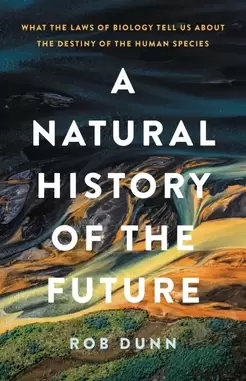 We recommend for your reading a thought-provoking new book by NC State University professor of applied ecology and entomologist Rob Dunn – “A Natural History of the Future: What the Laws of Biology Tell Us About the Destiny of the Human Species” (published in late 2021). This is the seventh book authored by Dunn, whose books and eloquent authorship are being compared to that of E.O. Wilson. Rather than asking whether nature will survive us humans, Dunn suggests it is better to ask whether we will survive nature. Despite our efforts to control nature, life has its own rules and no amount of human tampering can rewrite those basic rules. Dunn explains fundamental laws of ecology, evolution, and biogeography and shows that life will be changed but not repressed by our human activities. Instead, Dunn shows why it is our own human future and destiny that hang in the balance. Some excerpts from Rob Dunn’s conclusions in “A Natural History of the Future”: “In the near future, parts of Earth will be much more pleasant for extremophilic life-forms but much less for humans. We can find ways to survive such change. Just not forever. Eventually, we will go extinct. All species do. This reality has been called the first law of paleontology. The average longevity of animal species appears to be around two million years, at least for taxonomic groups for which the phenomenon has been well studied. If we consider just our species, Homo sapiens, that means we may still have some time. Homo sapiens evolved roughly two hundred thousand years ago. We are still a young species. This suggests that if we last an average amount of time, our road is still long. On the other hand, it is the youngest species that are most at risk of extinction. Like puppies, big-eyed and not yet wise, young species are prone to fatal mistakes.” continued . . .
0 Comments
|
When we see land as a community to which we belong, we may begin to use it with love and respect.... Conservation, viewed in its entirety, is the slow and laborious unfolding of a new relationship between people and land." There is in fact no distinction between the fate of the land and the fate of the people. When one is abused, the other suffers. From the PresidentSCP President Chuck Roe looked at land conservation along the route of John Muir's "Southern Trek." About ViewpointThis blog offers views of our Board and partners. We invite your viewpoint on the following questions: Archives
April 2024
Categories
All
|

 RSS Feed
RSS Feed